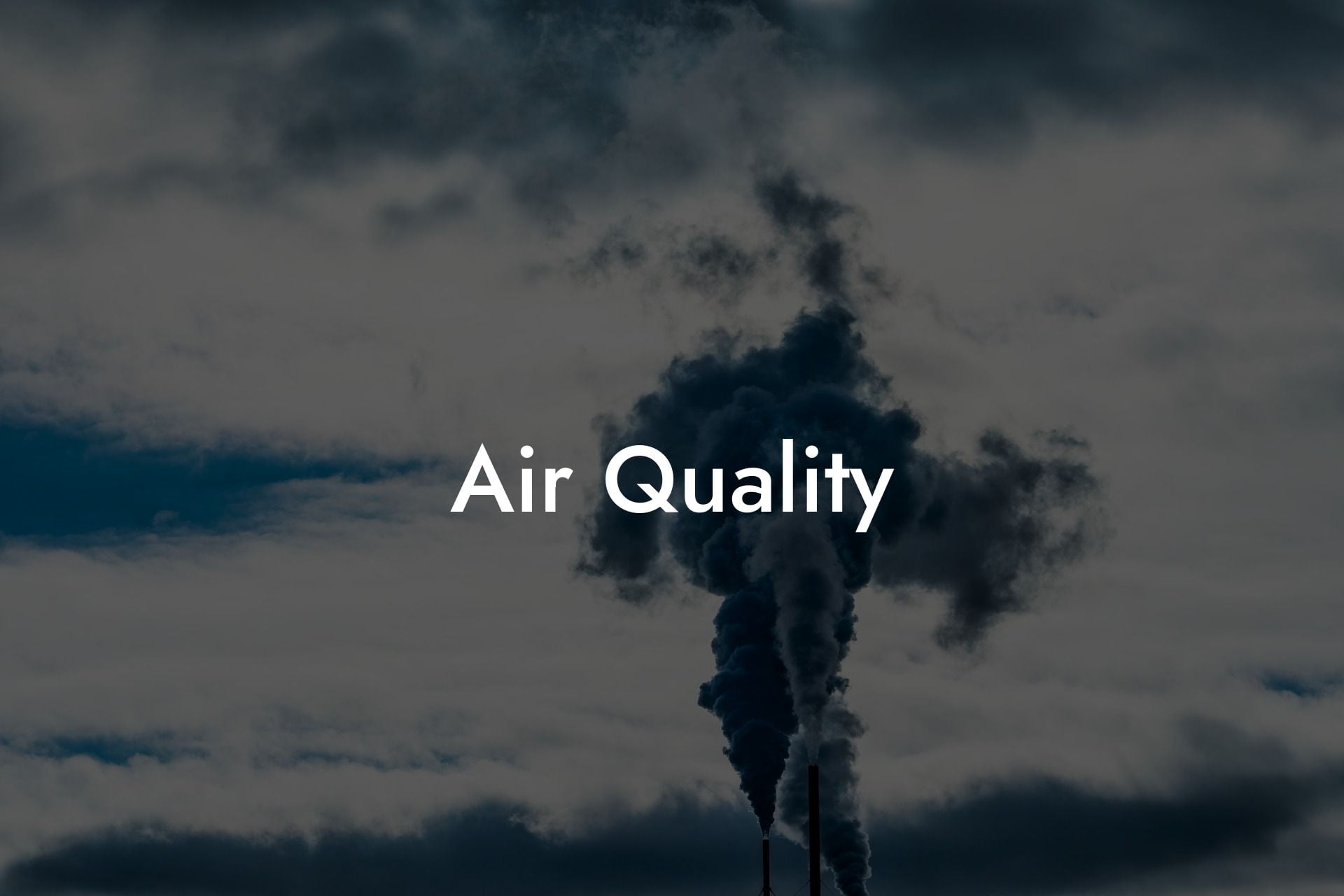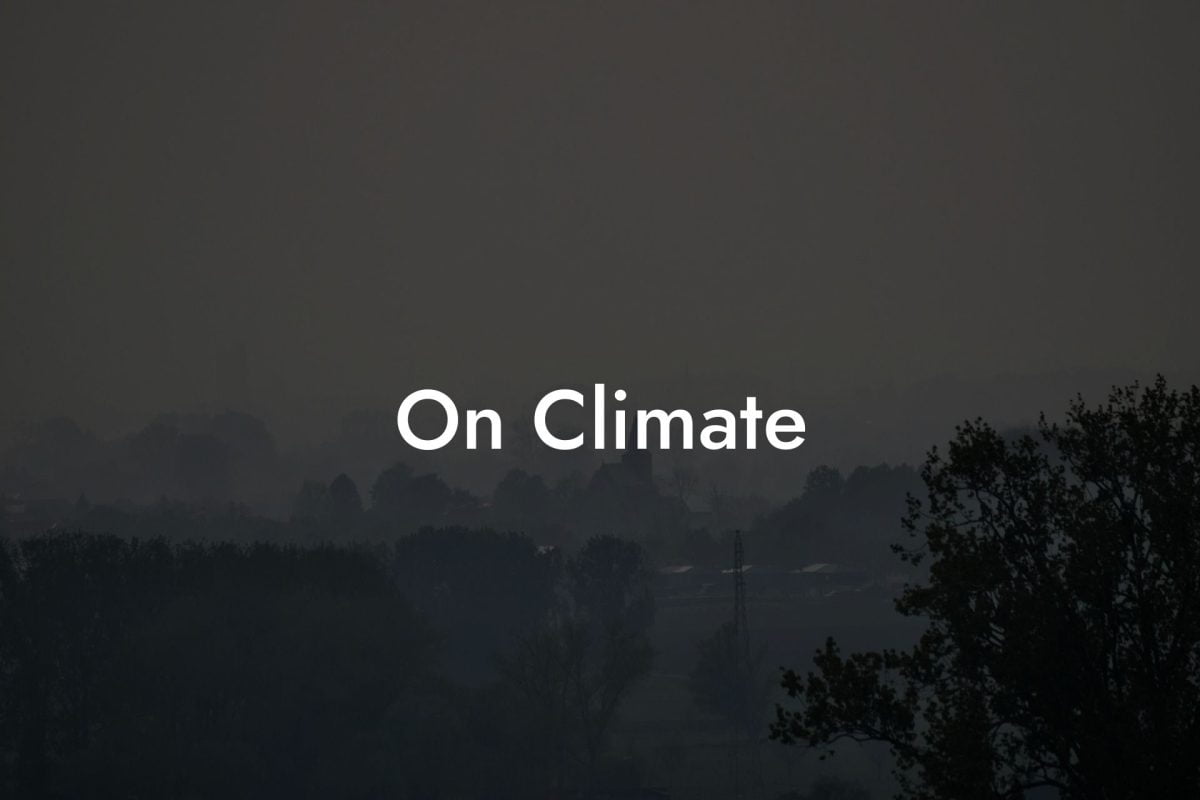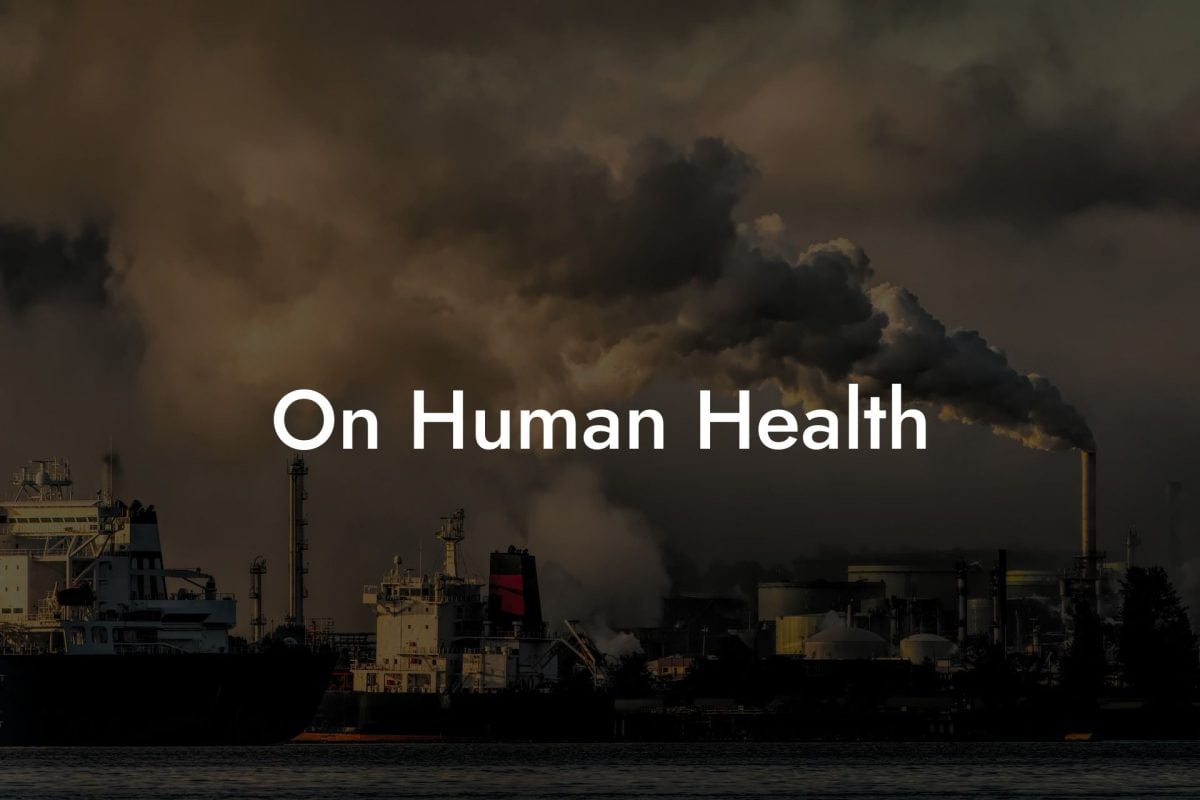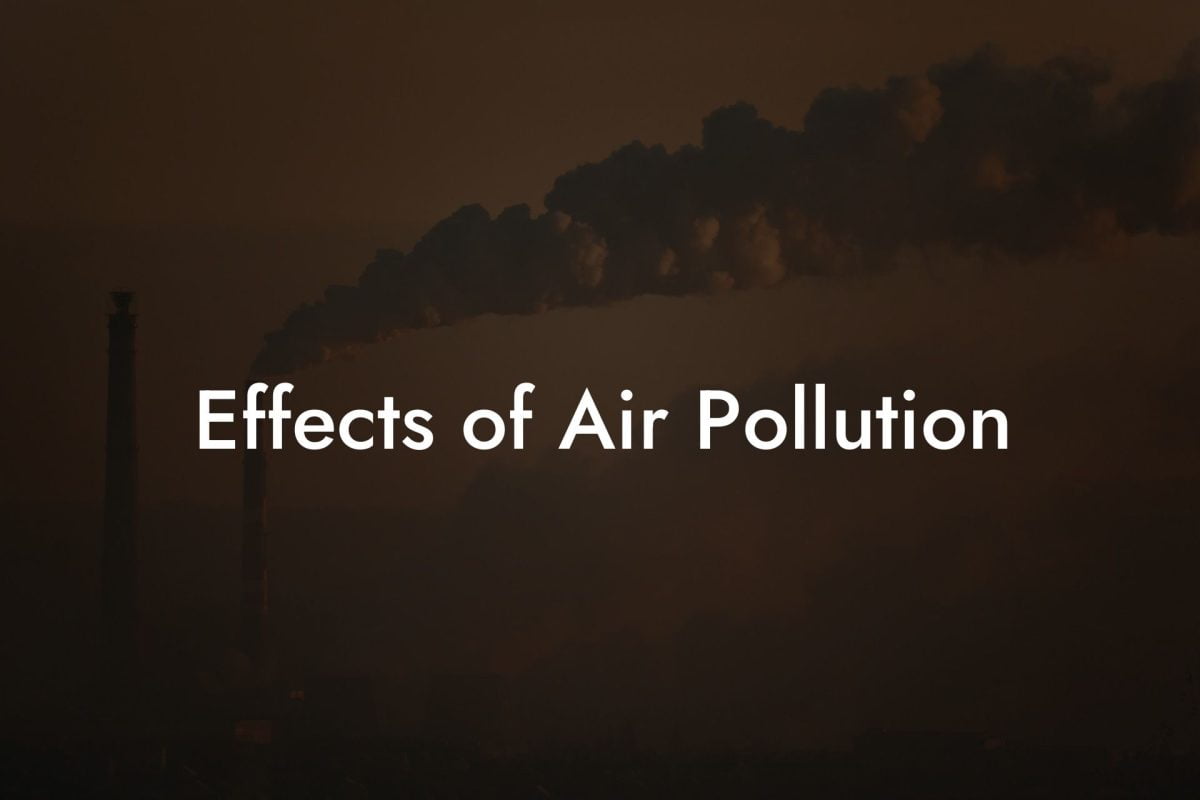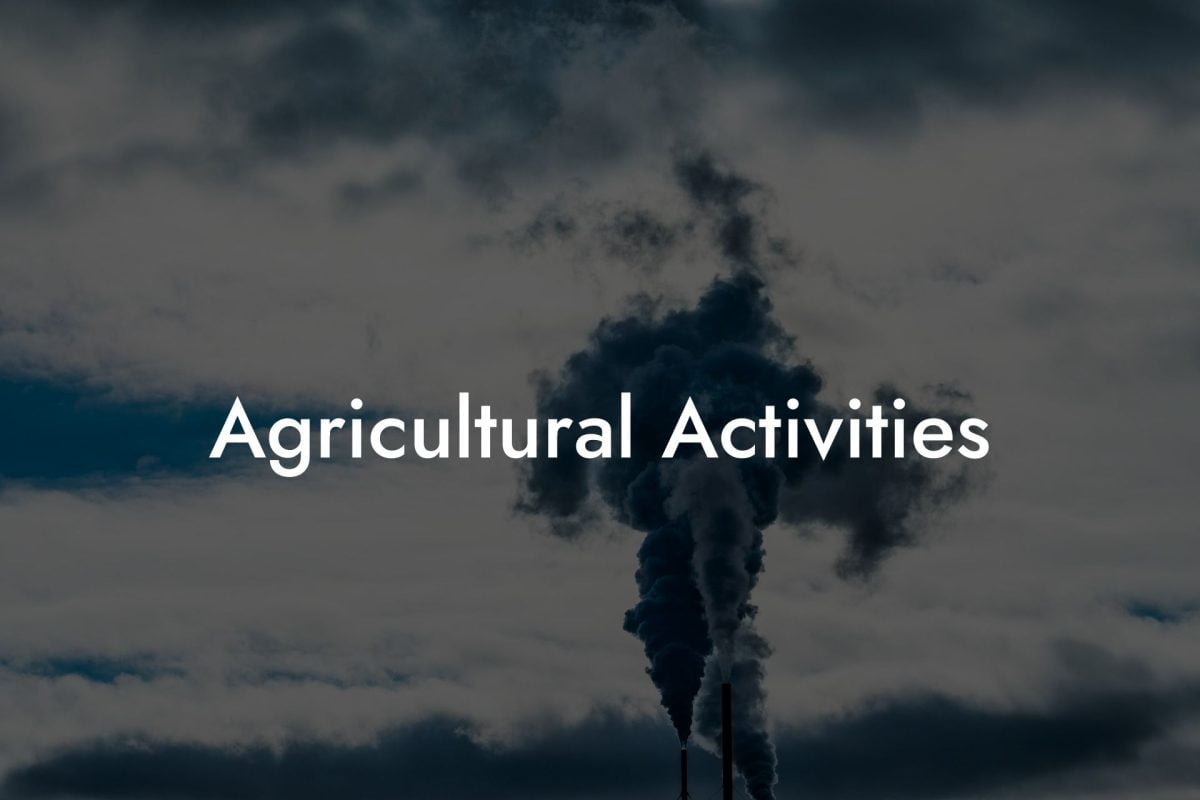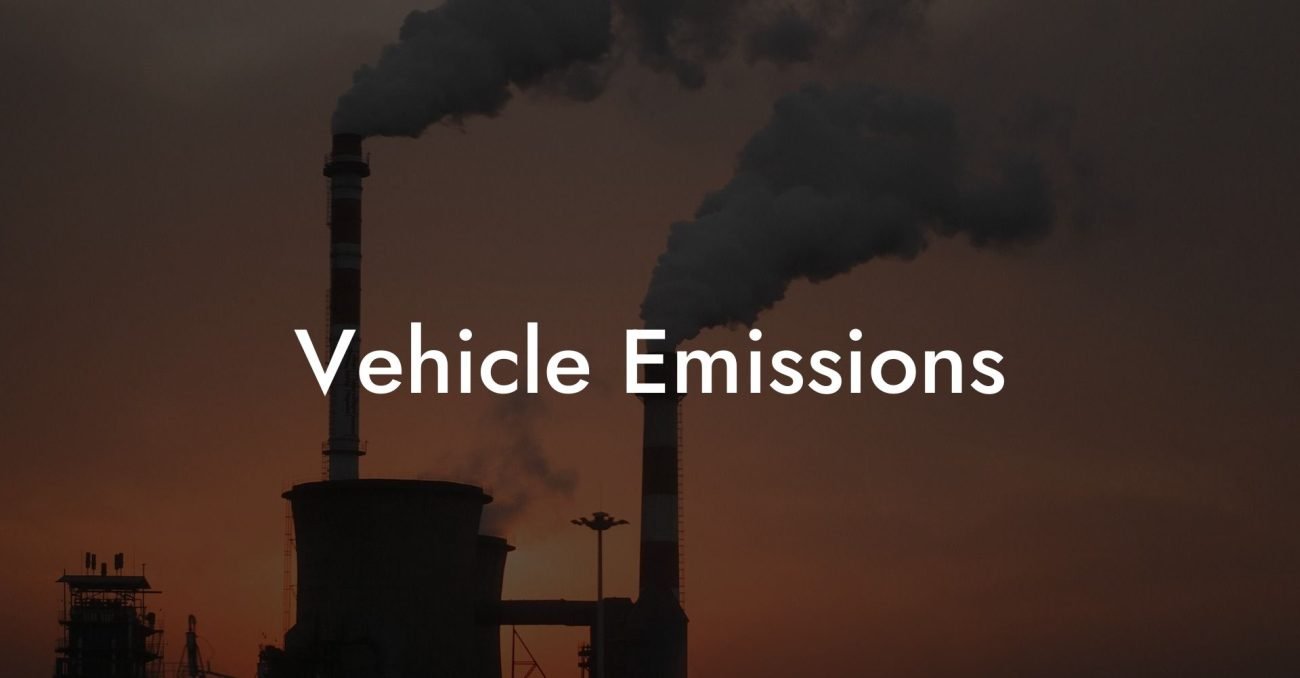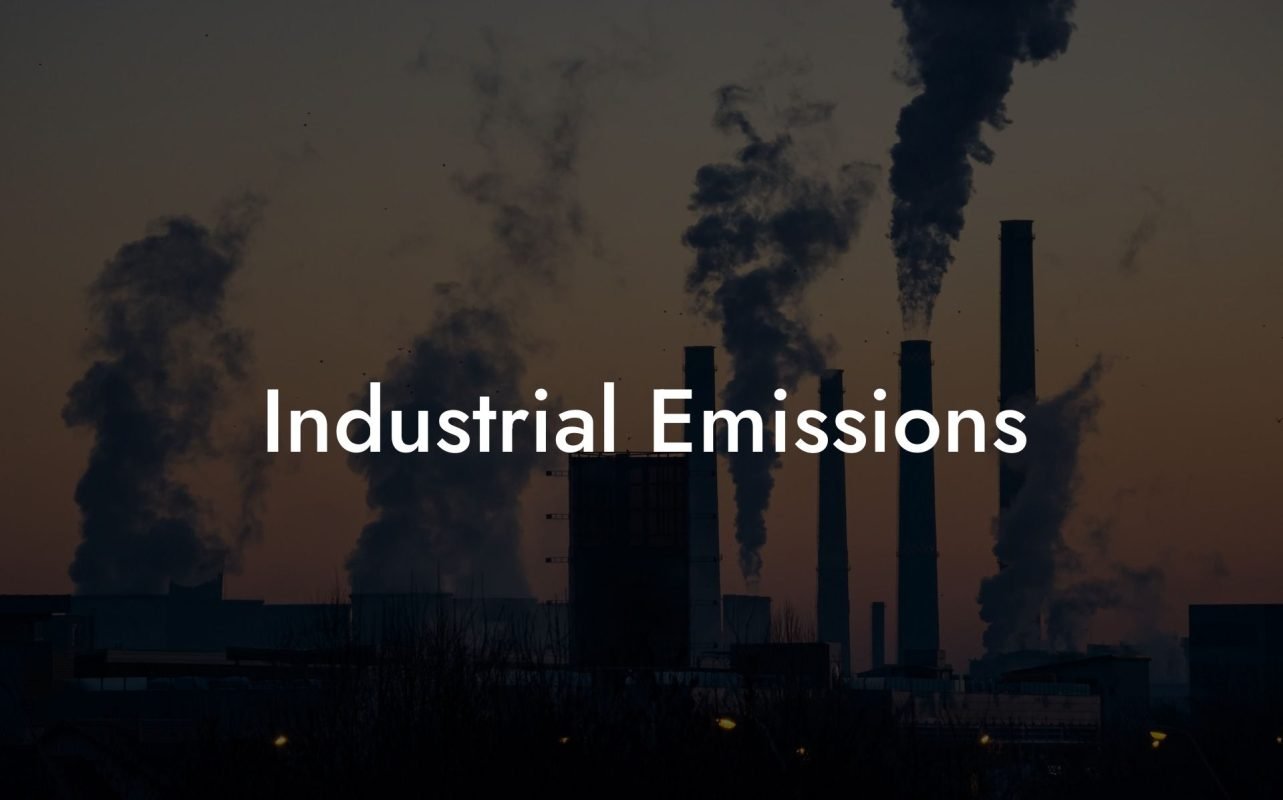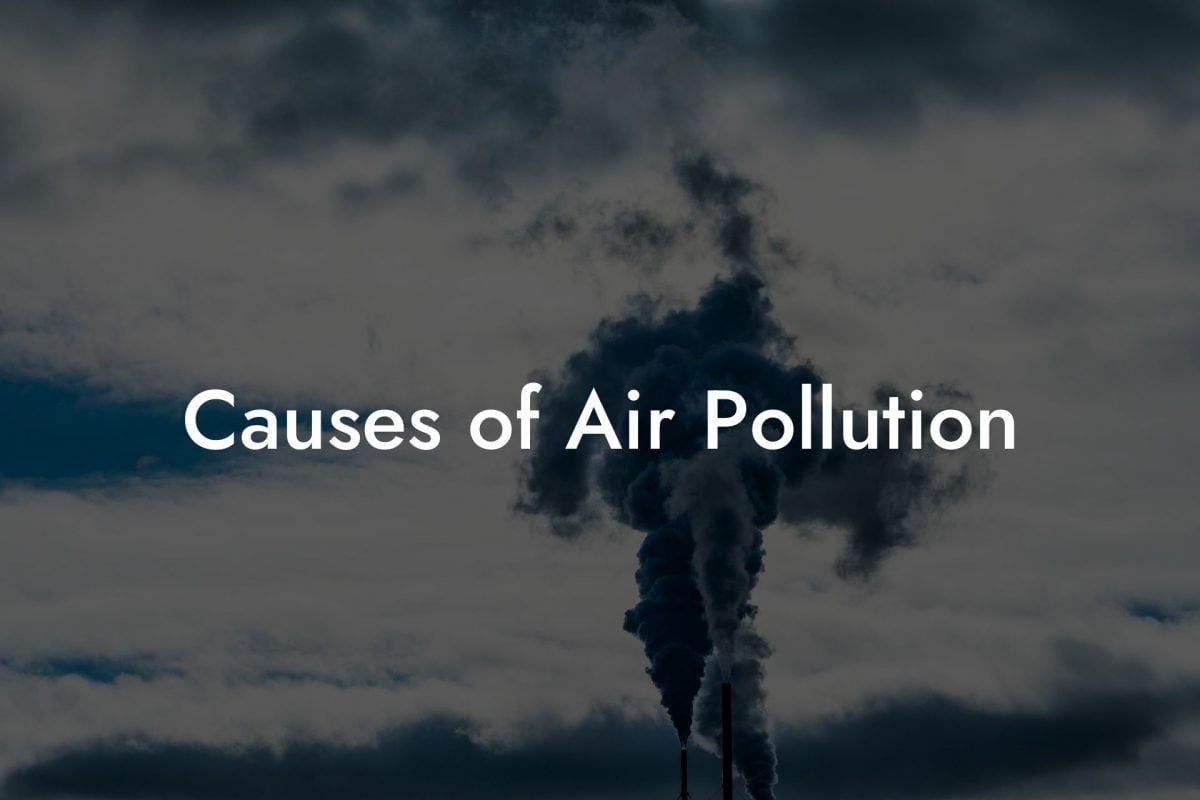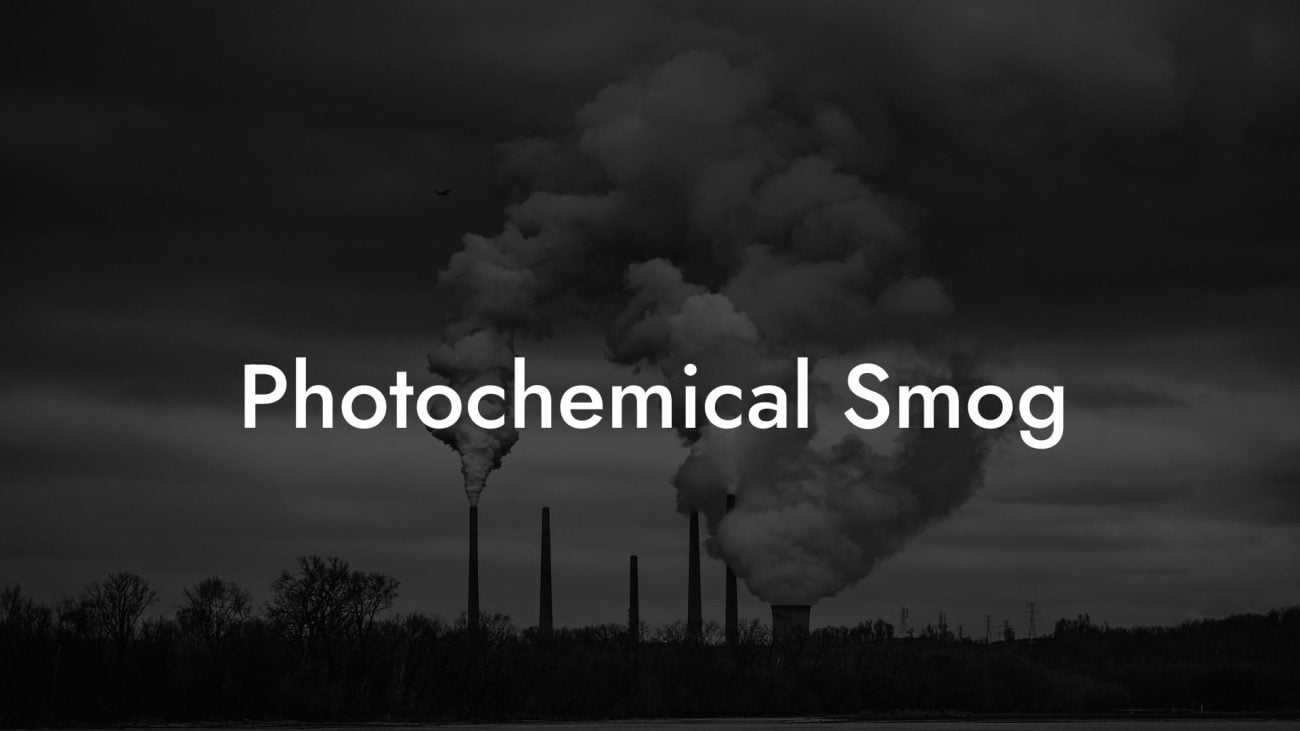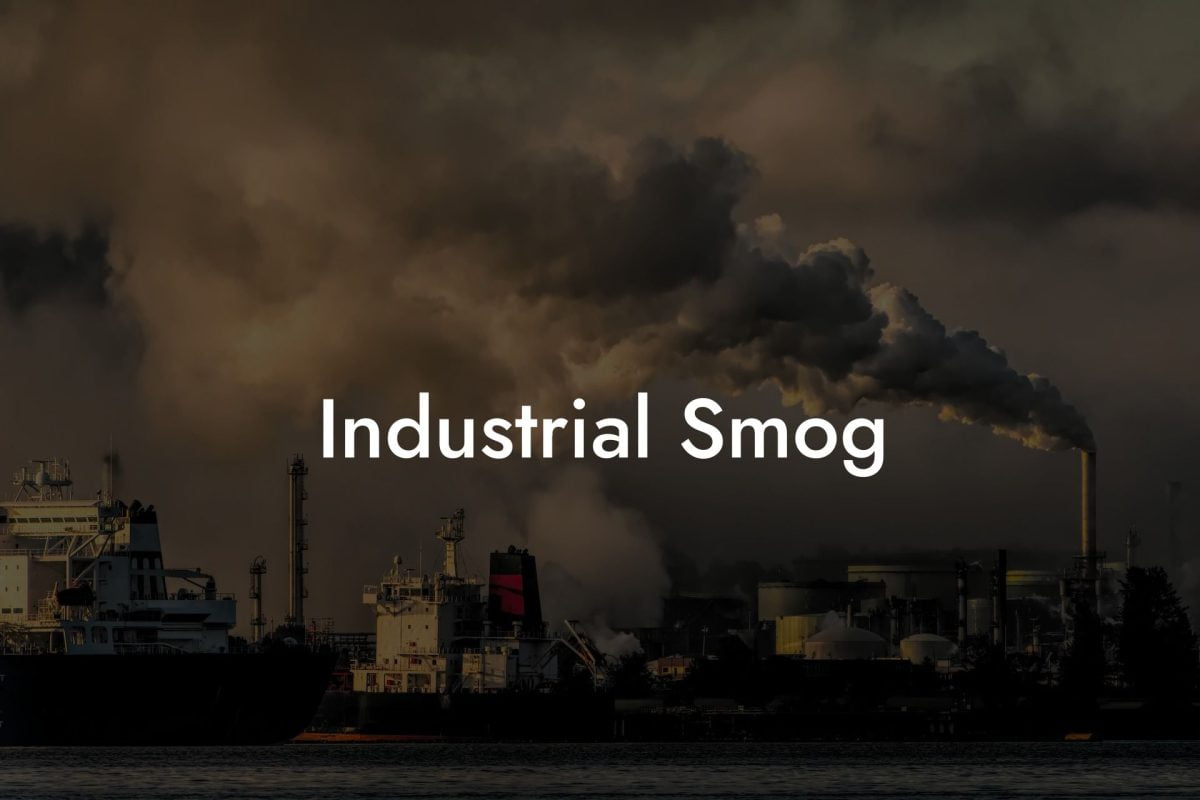Introduction to Air Quality
Air quality is a crucial aspect of environmental health, directly impacting human well-being, ecosystems, and the climate. Understanding air quality involves assessing the concentration of pollutants in the air we breathe and their effects on the environment and public health.
What is Air Quality?
Air quality refers to the state of the air around us, particularly the degree to which it is polluted by various contaminants. Good air quality signifies lower levels of pollutants, conducive to health and the environment.
Key Air Pollutants
Particulate Matter (PM)
Particulate matter, including PM2.5 and PM10, consists of tiny particles suspended in the air. These can originate from various sources, such as vehicle emissions, industrial processes, and natural events like wildfires.
Nitrogen Oxides (NOx)
NOx are gases produced primarily from burning fuels and contribute to smog formation and respiratory problems.
Sulfur Dioxide (SO2)
SO2 is a gas usually produced by burning fossil fuels containing sulfur, leading to acid rain and respiratory issues.
Carbon Monoxide (CO)
CO is a colorless, odorless gas resulting from incomplete combustion, posing serious health risks at high levels.
Ozone (O3)
Ground-level ozone, formed when pollutants react in sunlight, can cause respiratory problems and harm the environment.
Health Impacts of Air Pollution
Respiratory and Cardiovascular Diseases
Exposure to air pollutants increases the risk of respiratory diseases like asthma and bronchitis, and can lead to cardiovascular problems.
Effects on Vulnerable Populations
Children, elderly people, and those with pre-existing health conditions are particularly susceptible to the adverse effects of poor air quality.
Environmental Impacts
Ecosystem Damage
Air pollutants can harm wildlife, damage forests, and affect bodies of water, disrupting ecological balance.
Climate Change
Certain air pollutants, notably greenhouse gases, contribute significantly to climate change.
Monitoring Air Quality
Network Monitoring Stations
Air quality is monitored using a network of monitoring stations that measure concentrations of various pollutants.
Satellite Observations
Advancements in satellite technology enable the monitoring of global air quality patterns.
Air Quality Standards and Regulations
National and International Standards
Governments and international organizations establish air quality standards to protect public health and the environment.
Policies and Initiatives
Various policies and initiatives aim to reduce emissions of harmful pollutants and improve air quality.
The Role of Individuals
Reducing Pollution
Individual actions, like using public transport, conserving energy, and reducing waste, contribute to improving air quality.
Air Quality in the UK
Current State and Challenges
The UK faces several air quality challenges, particularly in urban areas due to traffic emissions and industrial activities.
UK's Efforts in Air Quality Management
The UK has implemented a range of measures to improve air quality, including emission reduction initiatives and public awareness campaigns.
UK Air Pollution: Your Comprehensive Air Quality Database
All-in-One Resource for Air Quality Information
UK Air Pollution provides extensive data on air quality across the UK, making it an invaluable tool for individuals and organizations involved in health, environmental studies, and policy-making.
Why UK Air Pollution?
Our database offers up-to-date, comprehensive, and easily accessible information on air pollution, helping users understand and address air quality issues effectively.
Enhancing Your Environmental Projects
Leverage the data and insights from UK Air Pollution to enhance your environmental projects, services, and research, contributing to a healthier, cleaner UK.
Frequently Asked Questions
What is Air Quality?
Air quality refers to the condition or cleanliness of the air in our environment and is determined by the concentration of pollutants, particulate matter, and other harmful substances in the air.
Why is Air Quality Important?
Air quality is crucial for human health, environmental health, and overall quality of life. Poor air quality can lead to health issues, impact ecosystems, and affect the climate.
What are Common Air Pollutants?
Common air pollutants include particulate matter (PM2.5 and PM10), nitrogen dioxide (NO2), sulfur dioxide (SO2), carbon monoxide (CO), ozone (O3), and volatile organic compounds (VOCs).
How is Air Quality Measured?
Air quality is typically measured using the Air Quality Index (AQI), which quantifies levels of air pollution. It measures the concentration of major pollutants and calculates a score indicating the air quality level.
What is the Air Quality Index (AQI)?
The AQI is a scale used to communicate how polluted the air currently is or forecast to become. It ranges from 0 to 500, where higher values represent worse air quality.
What Causes Poor Air Quality?
Poor air quality is usually caused by emissions from vehicles, industrial activities, wildfires, agricultural activities, and natural sources like dust and pollen.
How Does Weather Affect Air Quality?
Weather conditions like wind, humidity, and temperature can greatly influence air quality. For example, lack of wind can cause pollutants to accumulate, while rain can help clear pollutants from the air.
What are the Health Effects of Poor Air Quality?
Poor air quality can lead to respiratory problems, cardiovascular diseases, stroke, and worsened asthma and allergies. Long-term exposure can lead to chronic respiratory diseases and even lung cancer.
Can Indoor Air Quality Be Worse Than Outdoor?
Yes, indoor air quality can sometimes be worse due to pollutants like tobacco smoke, cooking fumes, VOCs from household products, mold, and poor ventilation.
How Can Individuals Improve Air Quality?
Individuals can improve air quality by reducing vehicle use, conserving energy, using environmentally friendly products, and planting trees.
What is Particulate Matter and Why is it Harmful?
Particulate matter (PM) consists of tiny particles suspended in the air. PM2.5 and PM10 can penetrate deep into the lungs and bloodstream, causing health problems.
How Do Vehicles Contribute to Air Pollution?
Vehicles contribute to air pollution mainly through exhaust emissions, releasing pollutants like nitrogen oxides, carbon monoxide, particulate matter, and hydrocarbons.
What are VOCs and How Do They Affect Air Quality?
Volatile Organic Compounds (VOCs) are gases emitted from certain solids or liquids, including paints, cleaning supplies, and pesticides. They contribute to the formation of ground-level ozone and smog.
What is the Role of Trees in Improving Air Quality?
Trees improve air quality by absorbing pollutants through their leaves, providing oxygen, and improving overall air quality through the process of photosynthesis.
How Does Industrial Activity Affect Air Quality?
Industrial activities contribute significantly to air pollution, especially through the burning of fossil fuels, emissions of chemicals and particulates, and poor waste management practices.
What is Ground-Level Ozone?
Ground-level ozone is a harmful air pollutant formed when pollutants emitted by cars, power plants, and other sources react chemically in the presence of sunlight.
How Can Air Quality Be Monitored at Home?
Air quality at home can be monitored using indoor air quality monitors that measure pollutants like VOCs, particulate matter, carbon dioxide, and humidity levels.
What Measures Can Cities Take to Improve Air Quality?
Cities can improve air quality by promoting public transportation, adopting green energy, enforcing emission standards, creating green spaces, and encouraging sustainable urban planning.
How Does Agriculture Affect Air Quality?
Agriculture affects air quality through emissions from livestock, which produce methane, use of fertilizers that release nitrous oxide, and dust from soil cultivation.
What are the Economic Impacts of Poor Air Quality?
Poor air quality can lead to increased healthcare costs, reduced worker productivity, and damage to ecosystems and agriculture, resulting in significant economic losses.
How Does Air Quality Affect Children and the Elderly?
Children and the elderly are more vulnerable to the effects of poor air quality due to their developing or weakened respiratory systems, increasing their risk of health problems.


